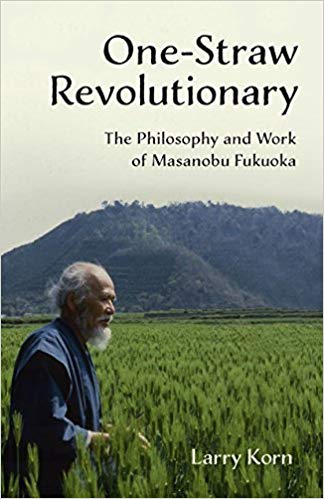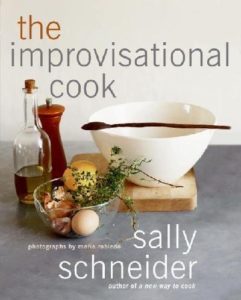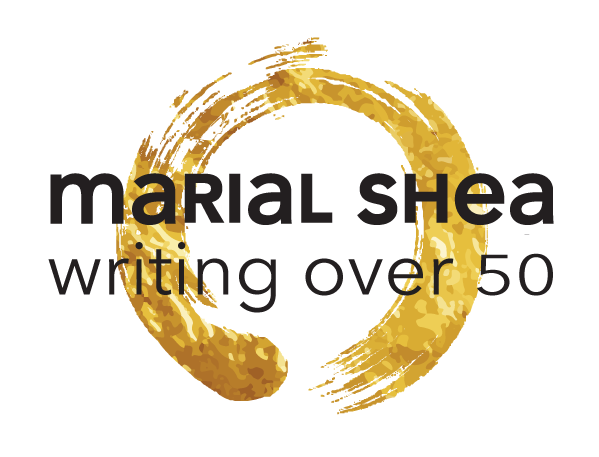
I’m always on the lookout for advice about writing. What can I say? I’m obsessed. I have a long shelf of books on writing and creativity — many of which I’ve even read. But I get a particular thrill when I stumble across writing advice in unexpected places. “Found” wisdom, if you will.
Natural writing
Here’s an example. Decades ago, I fell in love with a book on “natural farming” called The One-Straw Revolution, by renegade Japanese farmer Masanobu Fukuoka. This book turned my head inside-out about how to cultivate the land, and even how to live.
Browsing the library shelves the other day, I spotted One-Straw Revolutionary: The Philosophy and Work of Masanobu Fukuoka, written by one of the American translators and editors of the original One-Straw Revolution. I snatched it from the shelf and sat down on the floor right there at Dewey-decimal 631.58 and started reading. Within minutes, I found writing advice I didn’t know I was looking for, given by Fukuoka at a live Q&A in 1986:
Q: “How do you begin to practice natural farming?”
A: Stop thinking so much. Make your mind like the mind of a baby. They see the world directly without distinctions or judgements of any kind. When you go outside with a clear mind the trees and plants appear so beautifully. The less you think, the more beautiful things become. When you look with your eyes, you can only see the surface. When you look with your heart you can see everything.
Perfect advice for an over-thinker. Not to pull rank or anything, but I may actually be the Queen of Over-Thinking. I’m reminded of the technique of freewriting, in which you keep your hand moving during timed writings, to cut through the mind’s compulsive noise and get down to the bone of raw experience. Natalie Goldberg teaches a freewriting approach in Writing Down the Bones and all her later books, and Julia Cameron uses it in her Artist’s Way morning pages. The most compelling introduction to freewriting for me, though, is in Peter Elbow’s 1978 classic, Writing Without Teachers.
More transferable advice from Fukuoka-san:
Q: Many people trim ornamental plants and even some perennial vegetables in the fall so they will grow out more vigorously in the spring. Do you do that?
A: I would put that practice into the category of a horticultural trick. I allow plants, even the commercial citrus trees, to grow to their natural form. Trimming plants back and pruning orchard trees is really designed to make the plant bow to human will. It comes directly from the mentality that believes that nature exists solely for the use and benefit of human beings …
Here’s an example. One young Japanese fellow stayed at my farm for more than three years to learn about natural farming. Later he came to California with the idea of making the landscape green. He tried to grow rice on a dry hillside in the Coast Range where there was almost no water. He failed because he decided that he wanted to grow rice without first consulting with the spirit of the land and asking what it wanted. The first question you should ask when you come to a piece of land is, “What does the earth need?” not “What do I want to grow here.” “How can I serve nature?” instead of “What can I get from nature?”
How can I serve this writing idea that’s been gnawing at me? Does it want to be an essay, a blog post, memoir, short story, graphic novel? Fukuoka urges us to take instruction from the spirit of our material and the “terroir” of our own particular creative nature. What kind of writing is most natural to you? What sound does your true voice want to make?
When in doubt, improvise

But what if you’re “consulting with the spirit of the land” and you still have no idea what your material wants you to do with it? Don’t just sit there thinking. Pick up your pen or keyboard and write, even if you’re lost and confused. Especially if you’re lost and confused. Here’s where Sally Schneider, author of The Improvisational Cook, comes in:
Improvisational cooking is thrilling. It’s the key to ease and pleasure in cooking, freedom from recipes and set lists of ingredients, and liberation from other less tangible constraints: perfectionism, the voices of “I can’t,” fear of what will happen and maybe go wrong.
When you’re trying to figure out how to tell your story or write your blog post, when you’re doing your best to listen to your material and you’re up in your head thinking, thinking, thinking instead of writing, remember what Schneider says about the creative process:
Much of the process of improvising involves cultivating a mind-set – open, associative, resourceful – that spurs ideas and lets them flow. It’s being willing to ask: What would happen if? What would happen if I seasoned the pork roast with Moroccan spices instead of Italian-inspired garlic and sage? What would happen if I paired prosciutto with roasted apricots? Then you just go ahead and try out your idea, experiment with an open mind and without fear of the outcome, the mess you make, and the possibly imperfect results.
Schneider defines creativity as “relinquishing total control and allowing an idea to develop organically.” This means you might start out writing a blog post, and then realize it’s really a prose poem. Mess around. Do it wrong. Try stuff.
Learning to chop wood
If I had to choose only one book on the writing process, it would The Writing Life by Annie Dillard, a book about so much more than writing.
Wood chopping, for example. I first read the book when I lived on a small West Coast island just north of a similar island where Dillard had once retreated to finish a book. Like her, I lived in a house heated by a woodstove and, like her, I had not completely mastered the essential skill of chopping wood.
Dillard’s wood-chopping was so inept, she writes, that it became a source of regular entertainment for her neighbours. Until, that is, she had a dream one night that instructed her to:
“Aim at the chopping block, not at the wood.”
The instant I read this directive, which Dillard called “the only useful thing I had ever learned from any dream,” I knew it would work for me. So, there you go, wood-chopping advice in a book on writing.
Finding the wisdom that Is yours
You might have noticed that the advice I “found” has a theme: letting go, jumping in, improvising, messing about, allowing the nature of the plants/ingredients/stories to determine the structure. This is the kind of advice I tend to find because it’s the antidote to my particular poison of perfectionistic over-thinking. I need to get my hand moving, pour the words out of my head and onto the page, make a mess. The only way I can begin is to say YES to chaos and uncertainty.
The advice you find might be entirely different, but take heart, it’s out there: the exact wisdom you need in this moment about writing, photography, fashion design, colour theory – whatever your creative practice.
Keep your eyes open. Let it find you.
The One-Straw Revolution by Masanobu Fukuoka
One-Straw Revolutionary: The Philosophy and Work of Masanobu Fukuoka by Larry Korn
The Improvisational Cook by Sally Schneider
The Writing Life by Annie Dillard
